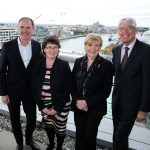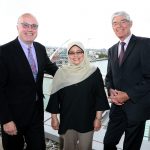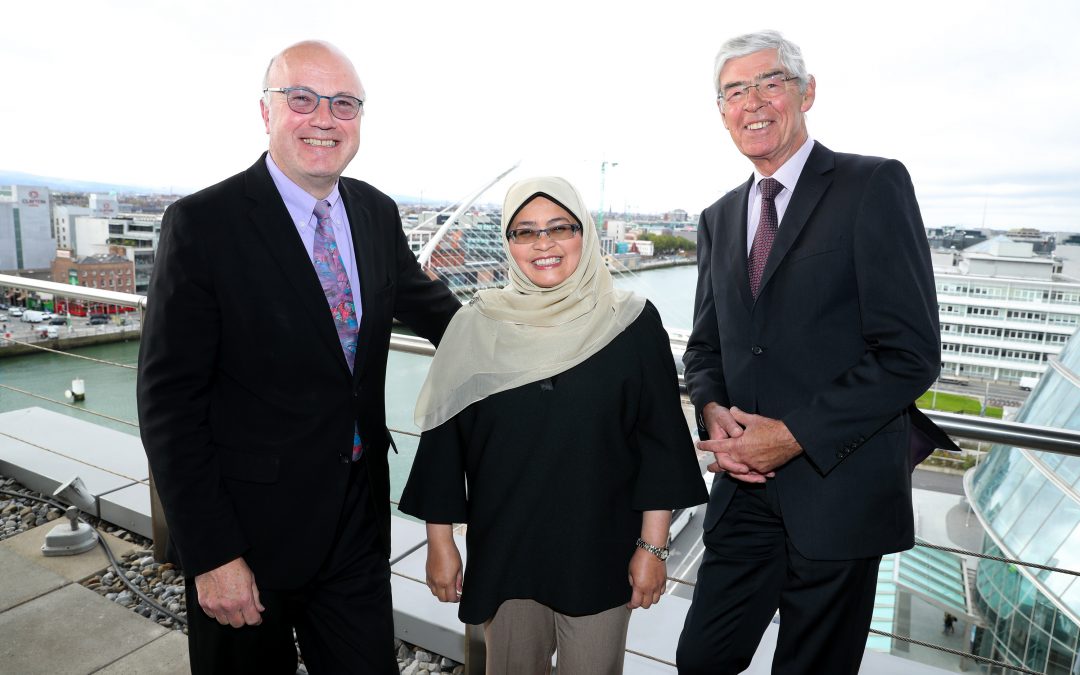
Joe Tynan, PwC; Marian O’ Sullivam, IPA; Ann Riordan, Asia Matters; and Alan Dukes, Asia Matters.

Prof Mark Ferguson, HE Excellency Anizan Siti Hajjar Adnin, Ambassador of Malaysia; and Alan Dukes, chairman, Asia Matters.
The Director General of Science Foundation Ireland, Prof Mark Ferguson, said Brexit would provide opportunities for Ireland because of our growing reputation for research and innovation.
Addressing a gathering of business leaders organised by Asia Matters, Ireland’s only think tank on fostering economic and trade links with Asia, Prof Ferguson said that Ireland would benefit from the uncertainty in the UK over Brexit. He said 17% (35,000 students) of all research students in the UK are from the 27 EU countries. Overseas student applications to UK universities are 30% down this year alone.
He said the real opportunity for Ireland was in headhunting key research staff and academics from the UK. Most countries were head hunting talent in the UK. Ireland, through collaboration and a joint appointments strategy, could attract top researchers and academics who still wanted to work in the UK but also wanted to be based 50% of their time in an EU country.
The Director General said Ireland was attractive to leading researchers and remained a country of choice for overseas students. He said that Ireland enjoyed enhanced bilateral research links with the UK and that, post Brexit, we could act as “a bridge between the UK and the EU and the US.”
He said that in the run up to Brexit, Ireland should intensify its efforts at diversifying its partnerships in science and innovation with other EU countries, particularly Germany.
Addressing the business briefing at PWC headquarters in Dublin, he said that currently the UK, as an EU Member State, and its universities secured significant funding under EU programmes for scientific research and innovation. He said while the UK contributes €5.4bn or 12.5% to EU funds it secured €8.8bn or almost 16% in science and innovation funding. Over 80% of this money currently “flows into” UK universities and research organisations but there was a low uptake by UK industry.
Prof Ferguson said Ireland last year achieved a world ranking in the top 10 for overall quality of its scientific research – an increase of 26 places in only 13 years.
He said that SFI Research Centres are making important scientific advances, enhancing enterprise and industry, training students with critical, in-demand skills, supporting regional development, and enhancing Ireland’s international reputation.
He added that last year, Science Foundation Ireland had directly and indirectly supported 31,000 jobs; supported over 1,600 industry collaborations, and funded researchers being involved in 2,359 international academic collaborations in 63 countries.
